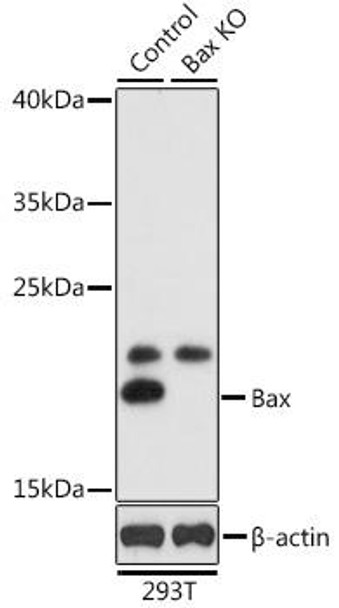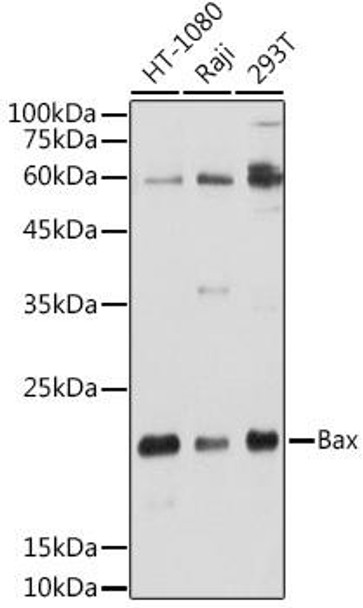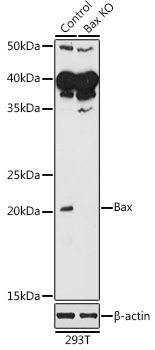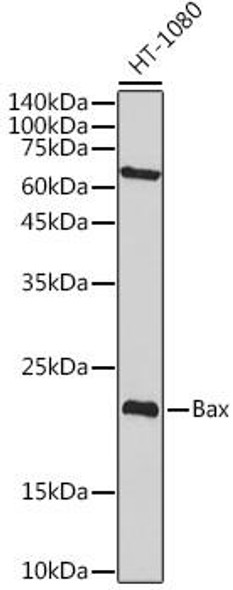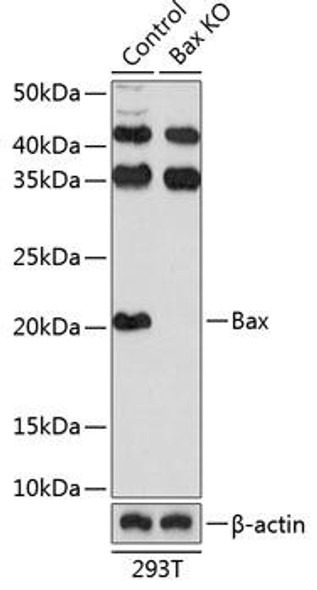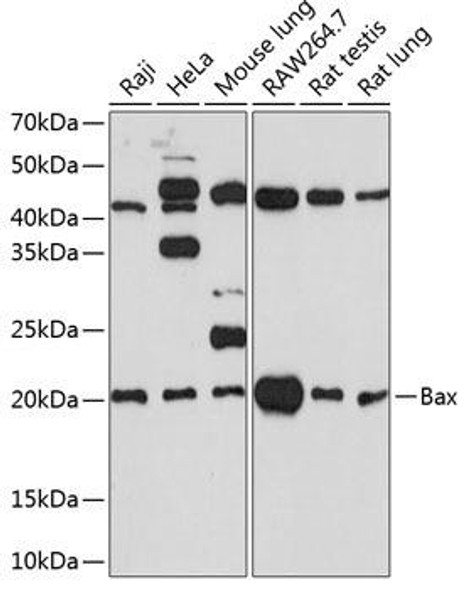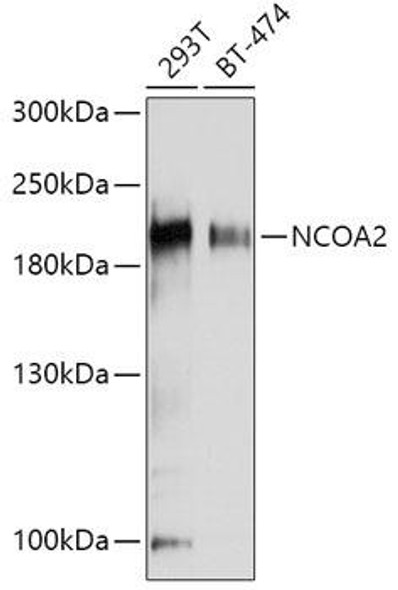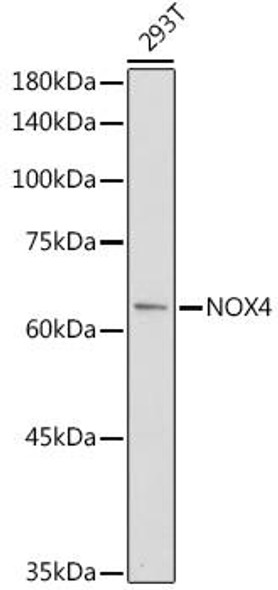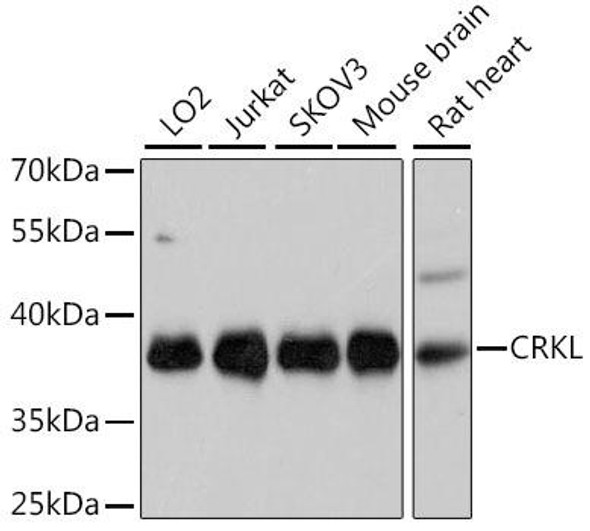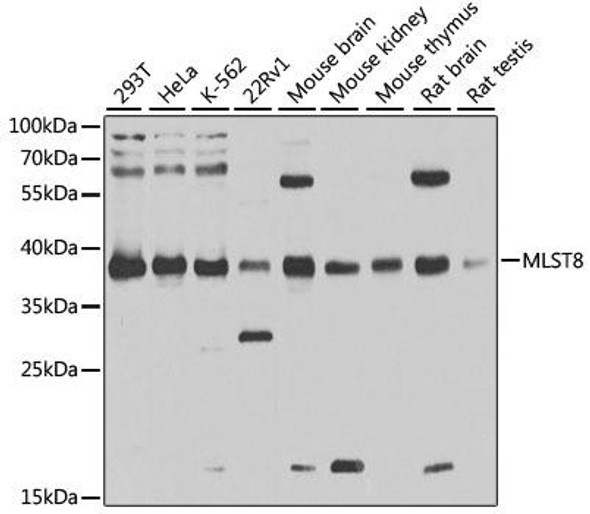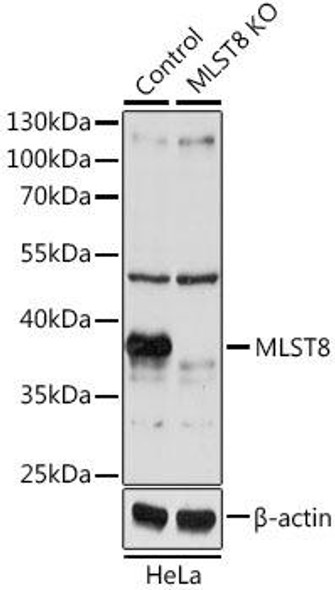Description
[KO Validated] Bax Rabbit Polyclonal Antibody (CAB0207)
The Bax Polyclonal Antibody (CAB0207) is a crucial tool for researchers studying the Bax protein, a key regulator of apoptosis and cell death. This antibody, produced in rabbits, exhibits high reactivity with human samples and has been validated for use in Western blot applications.Bax is a pro-apoptotic protein that plays a critical role in the intrinsic pathway of apoptosis, promoting cell death under various conditions such as DNA damage or cellular stress. Dysregulation of Bax can have profound effects on cell survival and contribute to the development of diseases such as cancer.With the ability to specifically bind to Bax, this antibody enables researchers to detect and analyze the expression and localization of the protein in different cell types.
Its versatility makes it an ideal tool for investigating the mechanisms of apoptosis and exploring potential therapeutic targets for conditions where aberrant cell death plays a role.Overall, the Bax Polyclonal Antibody (CAB0207) is a valuable resource for scientists conducting research in cell biology, oncology, and drug development, offering insights into the intricate processes governing cell fate and survival.
| Product Name: | [KO Validated] Bax Rabbit Polyclonal Antibody |
| SKU: | CAB0207 |
| Size: | 20uL, 100uL |
| Isotype: | IgG |
| Host Species: | Rabbit |
| Reactivity: | Human,Mouse,Rat |
| Immunogen: | A synthetic peptide corresponding to a sequence within amino acids 1-100 of human Bax (NP_620116.1). |
| Sequence: | MDGS GEQP RGGG PTSS EQIM KTGA LLLQ GFIQ DRAG RMGG EAPE LALD PVPQ DAST KKLS ECLK RIGD ELDS NMEL QRMI AAVD TDSP REVF FRVA ADMF |
| Tested Applications: | WB IHC-P IF/ICC IP ELISA |
| Recommended Dilution: | WB,1:500 - 1:1000 IHC-P,1:50 - 1:200 IF/ICC,1:50 - 1:200 IP,0.5ug-4ug antibody for 200ug-400ug extracts of whole cells |
| Synonyms: | BCL2 Associated X; Bcl-2-Like Protein 4; Bcl2-L-4; BCL2L4;BAX |
| Positive Sample: | HT-1080,Raji,293T |
| Conjugate: | Unconjugated |
| Cellular Localization: | Cytoplasm, Cytoplasm, Mitochondrion membrane, Single-pass membrane protein. |
| Calculated MW: | 21kDa |
| Observed MW: | 21kDa |
BAX (also known as BCL2 Associated X, Bcl-2-Like Protein 4, Bcl2-L-4, BCL2L4) is a member of the BCL2 family of proteins that play a key role in the regulation of apoptosis in higher eukaryotes (https://www.uniprot.org/uniprot/Q07812). BAX comprises 4 Bcl-2 homology domains (BH1-BH4) and a C-terminal transmembrane domain. In healthy mammalian cells, BAX is localized to the cytoplasm through its interaction with the anti-apoptotic BL-2 family members BCL2L1/Bcl-xL . In response to apoptotic stimuli, however, BAX undergoes a conformational change that causes it to translocate to the outer mitochondrial membrane where it initiates the mitochondrial pathway of apoptosis via two potential mechanisms. Firstly, upon translocation to the outer mitochondrial membrane, BAX interacts with the mitochondrial voltage-dependent anion channel (VDAC) leading to the opening of the channel, loss of membrane potential, and the release of cytochrome c from the mitochondrion . The release of cytochrome C into the cytoplasm leads to the activation of Caspase3, initiating apoptosis. Secondly, activated BAX forms homodimers, which then assemble into oligomers on the mitochondrial outer membrane to create pores that permeabilize the mitochondrion leading to the release of cytochrome C.BAX has been shown to be involved in p53-mediated apoptosis. Expression of the human bax gene has been shown to be directly regulated by p53, and the bax promoter contains four motifs with homology to consensus p53-binding sites. Furthermore, p53 directly interacts with BAX to promote its activation.
| Purification Method: | Affinity purification |
| Gene ID: | 581 |
| Storage Buffer: | Store at -20℃. Avoid freeze / thaw cycles.Buffer: PBS with 0.01% thimerosal,50% glycerol,pH7.3. |

